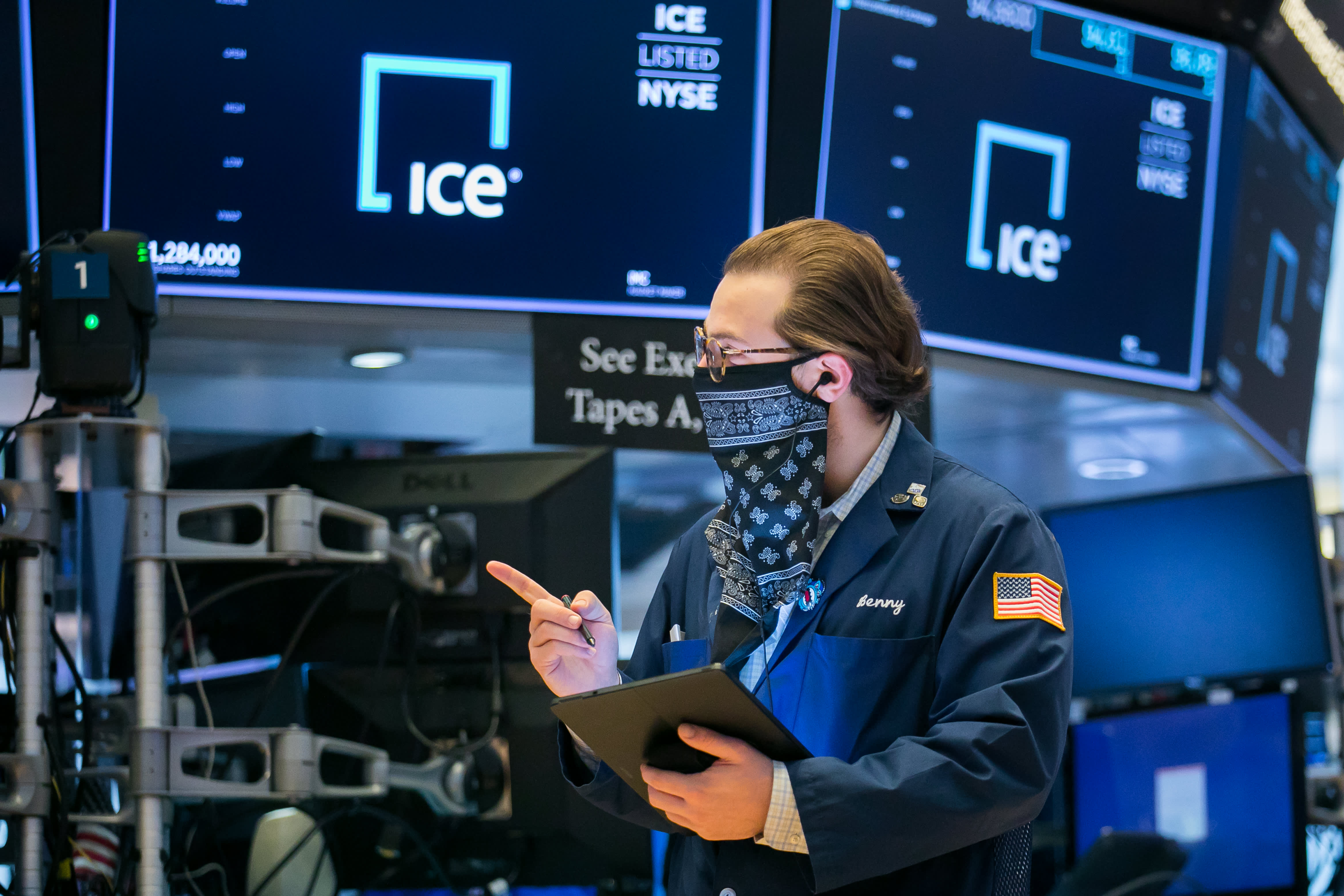Dow falls more than 150 points amid concerns about virus cases, Federal Reserve funding

Stocks fell on Friday as rising new coronavirus cases, coupled with questions around central-bank funding for a key emergency programs, cast doubt on a swift economic recovery.
The Dow Jones Industrial Average dipped 170 points, or 0.6%. The S&P 500 slid 0.4% and the Nasdaq Composite pulled back by 0.1%.
UnitedHealth and Boeing were the worst-performing stocks in the Dow, falling 1.3% and 1.4%, respectively. Financials fell 0.9% to lead the S&P 500 lower along with energy.
The U.S. seven-day average of daily new Covid-19 infections now stands at 165,029, according to a CNBC analysis of John Hopkins data, 24% higher than a week ago. On Thursday alone, a record 187,833 cases were reported. Many states have rolled back reopening plans and implemented fresh restrictions to curb the spread.
California Gov. Gavin Newsom on Thursday issued a “limited Stay at Home Order” on a majority of the state’s residents, requiring nonessential work and gatherings to cease between 10 p.m. and 5 a.m. Meanwhile, the Centers for Disease Control and Prevention advised Americans against traveling for Thanksgiving.
JPMorgan economist Michael Feroli wrote in a note that this latest round of restrictions will “likely deliver negative growth” in the first quarter of 2021. He also downgraded his first-quarter GDP outlook to a contraction of 1%, making him the first Wall Street economist to forecast negative GDP for the start of next year.
The major averages were roughly flat for the week entering Friday’s session as the increasing number of cases slows the market’s rally to record highs. The Dow and S&P 500 were little changed through Thursday’s close and the Nasdaq Composite had gained 0.6%.
“The market is churning a bit as investors digest the recent ramp higher, grapple with a worsening in the Covid-19 spread,” Tony Dwyer, Canaccord Genuity’s chief market strategist, said in a note.
Also weighing on sentiment Friday was a disagreement between the Treasury Department and the Federal Reserve over the continuation of funding for some of the emergency programs implemented during the recession.
Treasury Secretary Steven Mnuchin is seeking to end a handful of the Fed facilities that bought corporate bonds as well as the Main Street Lending Program targeted towards small- and medium-sized businesses. The move has drawn pushback from the central bank, which said the programs continue to serve an important role to support the vulnerable economy.
“Mnuchin’s move will tighten financial conditions and removes a safety net for markets at the wrong moment,” Krishna Guha, Evercore ISI vice chairman and head of global policy and central bank strategy, said in a note on Thursday.
Bond king Jeffrey Gundlach said Mnuchin’s request would shut down the corporate credit programs that “propped up” the markets in the spring. The DoubleLine Capital CEO raised the question if the markets can hold up without the Fed’s support, saying “the training wheels are coming off.”
To be sure, Mnuchin told CNBC’s Jim Cramer that people were misunderstanding this decision, adding there is still plenty of money to provide funding if needed.
“This was a very simple thing. We’re following the intent of Congress,” Mnuchin said on “Squawk on the Street.”
People familiar with the matter also told CNBC’s Steve Liesman that either Mnuchin or a new Treasury secretary from the Biden administration could decide to revive the emergency lending programs under a new agreement with the Fed.
On the bullish side, markets got more good news on the vaccine front with Pfizer and BioNTech saying they will apply for an emergency use authorization for their vaccine from the Food and Drug Administration on Friday. The companies said they can be ready to ship the vaccine within hours after FDA approves the authorization.
Subscribe to CNBC PRO for exclusive insights and analysis, and live business day programming from around the world.




